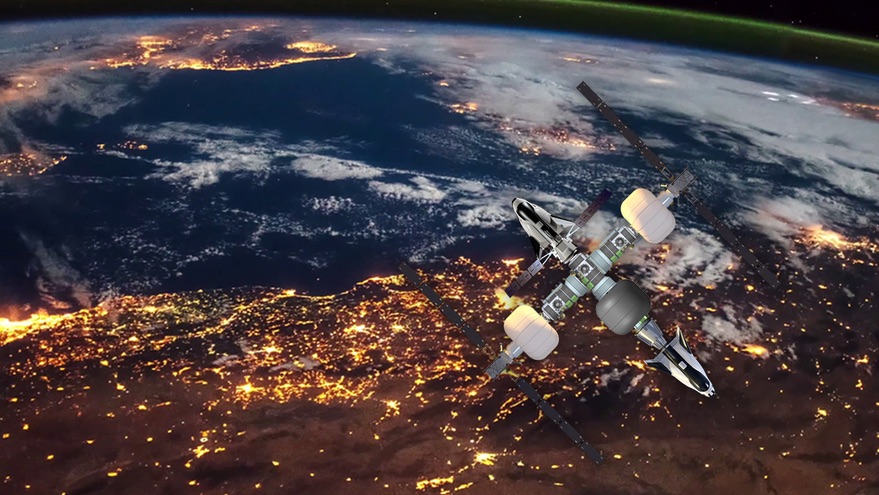Products You May Like
WASHINGTON — Sierra Nevada Corporation (SNC) says the first flight of its Dream Chaser spacecraft to the International Space Station is now planned for 2022 after development delays caused by the pandemic.
During a media briefing Nov. 17, SNC executives said that despite the near-term delays in assembly of the lifting-body cargo spacecraft, they were still focused on a long-term plan that includes using cargo and crew versions of Dream Chaser to support a commercial space station by the end of the decade.
The company had previously planned a first flight of Dream Chaser, the first of six under a Commercial Resupply Services contract with NASA to transport cargo to and from the International Space Station, in late 2021. But at the briefing, company officials said that mission is now scheduled for some time in 2022.
‘’COVID has definitely played a role” in that delay, said Steve Lindsey, senior vice president for strategy at SNC Space Systems. One example he gave involved structural testing of the spacecraft’s cargo module at a contractor’s facility in San Diego. COVID-related restrictions prevented SNC engineers from being on site at that facility to oversee the tests.
SNC developed a workaround by using a mission control center it developed for Dream Chaser in Colorado so those engineers could remotely oversee those tests. “That worked great. Unfortunately, it took probably three or four times as long as it should have,” he said.
A related problem, he said, involves suppliers who have had to suspend operations because of COVID-19 outbreaks at their facilities. There have also been technical challenges with Dream Chaser, although he did not go into details about specific issues. “All of those things have conspired to move the date a little bit,” he said.
Lindsey wasn’t more specific about a launch date other than some time in 2022. A specific date, he said, will depend on both when the vehicle is ready as well as NASA’s “traffic model” for visiting vehicles, which include Dream Chaser as well as other cargo and crew spacecraft.
In addition to its NASA cargo contract, the company continues to seek other customers for the vehicle while retaining the option for a crewed version. “There is a lot of interest out there. There’s a lot of folks watching our progress,” he said. “We believe the market demand is out there.” He didn’t identify any customers beyond the United Nations’ Office for Outer Space Affairs, which previously announced an agreement with SNC for a Dream Chaser mission that would carry experiments from member countries.
SNC is looking to move beyond Dream Chaser to commercial space stations that could be supported by cargo and crewed versions of Dream Chaser. Janet Kavandi, the company’s new executive vice president for space systems, showed an illustration of a space station incorporating inflatable modules the company has been developing as part of NASA’s Next Space Technologies for Exploration Partnerships program.
“This is our vision for the future,” she said. “We have visions for how to build platforms in space that can be built commercially” for use in applications ranging from scientific research to tourism.
Company officials didn’t go into depth about their plans for a commercial station, but Kavandi billed it as an “easy transition” from the ISS. Lindsey suggested the company will pursue a future NASA solicitation to provide funding for a commercial space station, one that has been on hold in part because of a lack of funding for the agency’s overall low Earth orbit commercialization plans.
Those NASA plans foresee a gradual transition by the agency from the ISS to commercial platforms. Lindsey said he expected the ISS to operate to 2028 or 2030, by which time commercial successors like that proposed by SNC will be in place to handle research activities currently done on the ISS. “I think the timeframe will be the end of the 2020s, going into 2030, when that happens,” he said.
